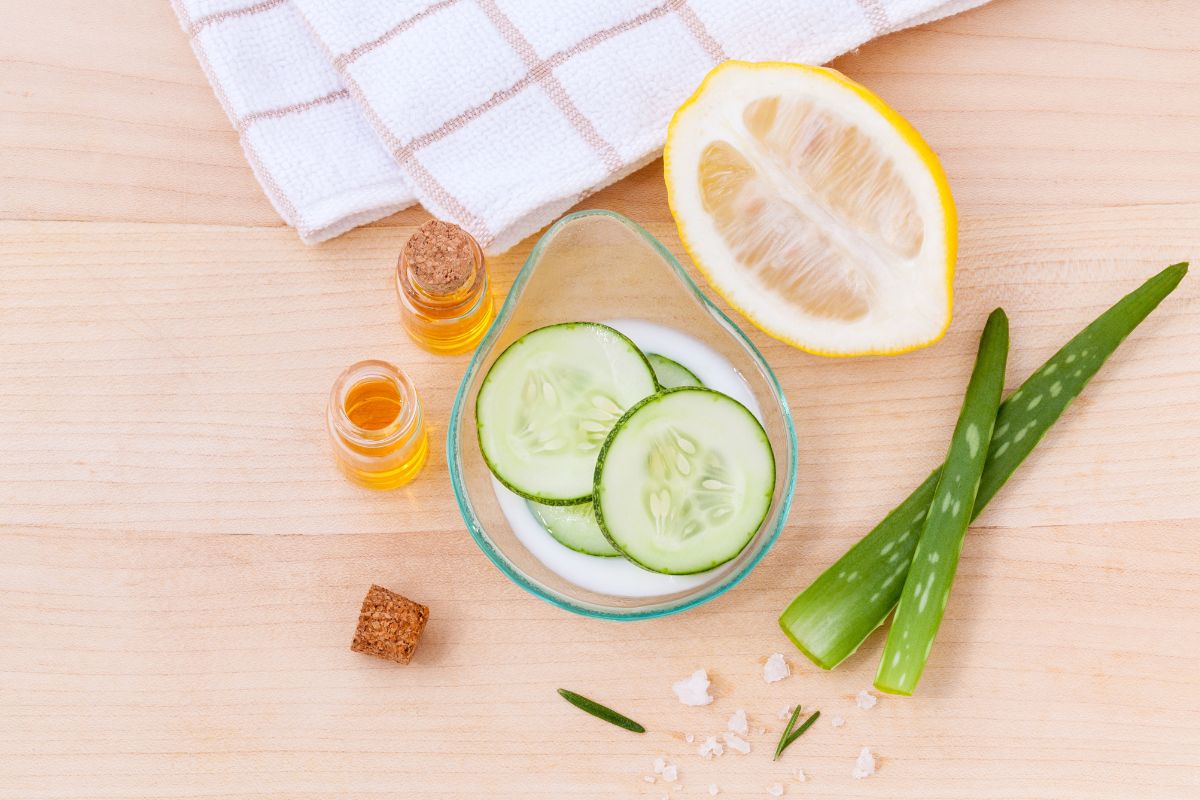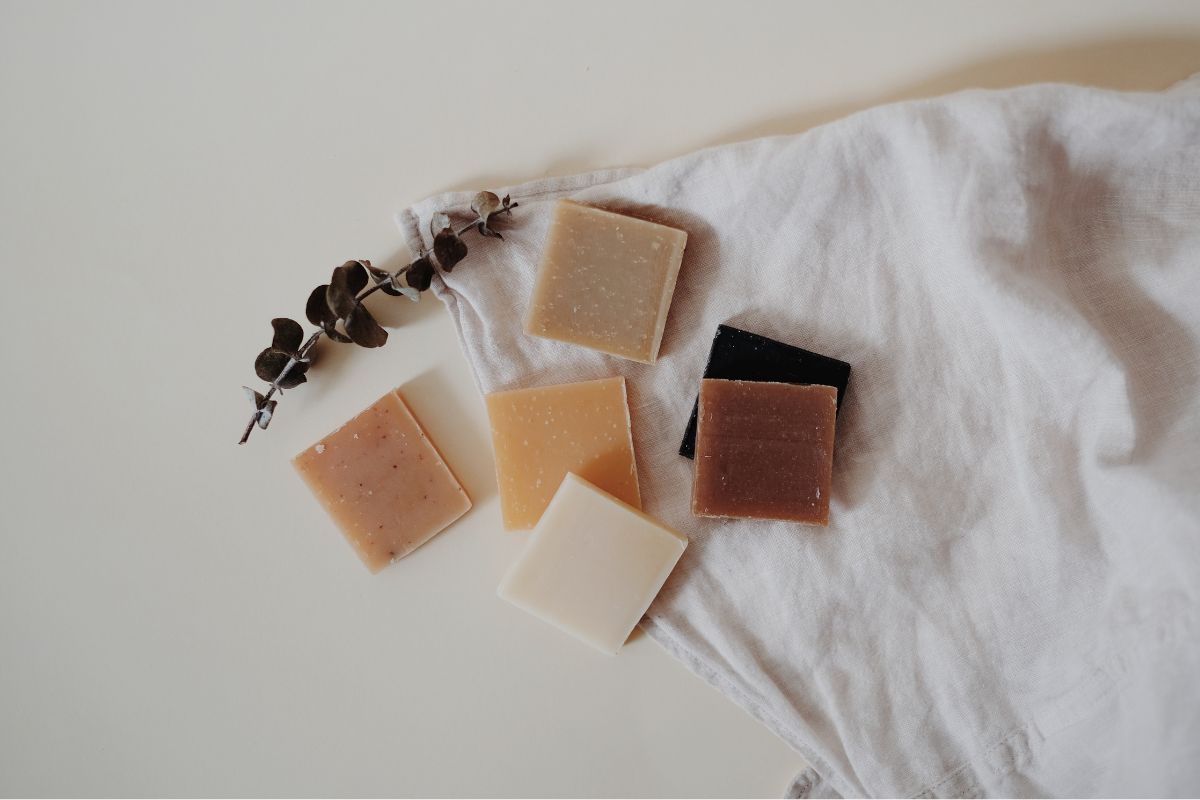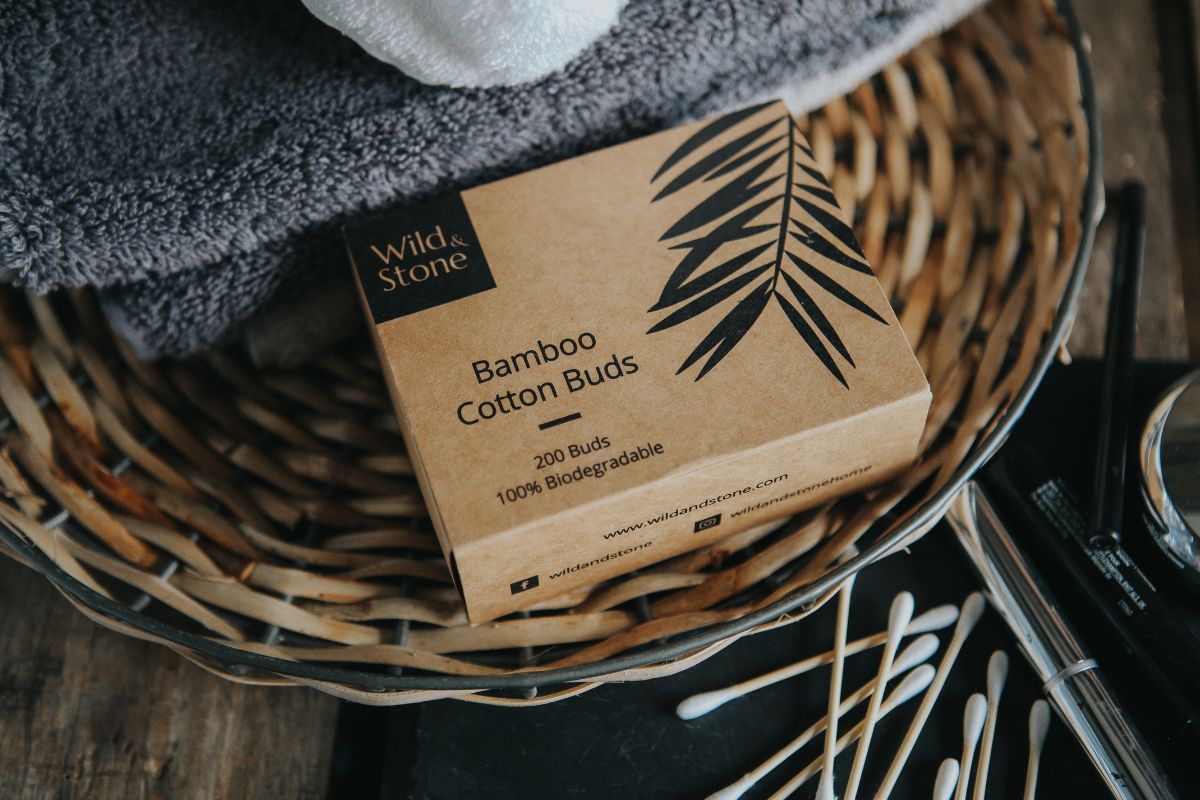Your Cart is Empty
INFO

5 Sustainable Ways to Remove Makeup
April 06, 2023 5 min read
For many of us, makeup is a part of our daily regime, and effectively removing makeup is essential if you want to look after your skin. Makeup that isn’t removed before bedtime can cause breakouts or other skin reactions, so it’s super important that you spend just as much time and effort removing the makeup as you did putting it on in the first place.
Makeup remover wipes have become increasingly popular in recent years due to their convenience and ease of use, but as they are non-biodegradable, they can take up to a staggering 100 years to decompose. Also, according to the Marine Conservation Society, wet wipes, including makeup wipes, are the fastest-growing cause of pollution on beaches in the UK.
This highlights the need for more sustainable alternatives to makeup wipes, and we’re here to discuss these alternatives with you!
Here are 5 of the most sustainable ways you can remove your makeup, without hurting your skin, or the planet:
1. DIY Makeup Remover
One of the most affordable ways you can sustainably remove your makeup is to create a DIY makeup remover at home using natural and eco-friendly ingredients.

The great news is that there are countless DIY makeup remover recipes to suit you, from oil-based to water-based.
Coconut Oil
One easy recipe is a coconut oil makeup remover. Simply use the warmth of your palm to melt a tablespoon of coconut oil and gently massage it onto your face to dissolve makeup and grime. Wash with water then pat dry.
Coconut oil can even break up water-resistant substances such as stubborn eye shadow and mascara, so you can have complete peace of mind that you won’t be left with panda eyes!
What’s more, coconut oil has additional benefits like locking in moisture and delivering antioxidants to the skin, and its antiviral, antibacterial, and antifungal properties make it an excellent choice for acne prone skin.
Cucumber and Aloe Vera
Both cucumber and aloe vera have many benefits when it comes to skin health. And the best part is that these plants, when mixed together, can be used as an effective makeup remover. Aloe vera also has anti-ageing properties, helping to keep your skin moisturised and healthy at all times.
To create, blend together a quarter of a cucumber and two tablespoons of aloe vera gel. Apply to the face with a cotton padand wipe away makeup.
These DIY makeup removers are not only effective at removing makeup, but they are affordable, eco-friendly alternatives to conventional makeup removers, and allow you to carefully control the ingredients going onto your skin and avoid harmful chemicals that can damage your skin and the environment.
2. Cleansing Bars
Facial cleansing bars are soap bars that are designed to cleanse the skin, and usually made with natural ingredients, meaning they are free from harmful chemicals, sulphates, and other harsh irritants.
They often come in minimal packaging (such as paper or cardboard), which is often recyclable, meaning they produce less plastic compared to traditional liquid cleansers housed in plastic bottles.
Due to their compact design, facial cleansing bars are typically more concentrated than liquid cleansers, meaning they last longer and won’t need to be replaced as frequently.

Cleansing bars therefore reduce the amount of resources needed to produce and transport new products, and again, reduce the amount of waste created.
3. Eco-friendly Micellar Water
Now, you’ve probably (most certainly) heard of micellar water, but did you know you can get eco-friendly micellar water? Micellar water is a water-based cleanser that contains tiny molecules, which attract and remove dirt, oil, and makeup from the skin without needing to rinse.
The eco-friendly version is typically made with natural and biodegradable ingredients, such as plant-based oils and and surfactants. These ingredients are less harmful to the environment than traditional micellar water products as they break down more easily in the environment. Some micellar water products, like this one from Flawless Beauty, also come in zero-waste packaging, and therefore won’t contribute to plastic waste pollution.
4. Biodegradable Cotton Buds
Now I don’t know about you, but cotton buds are an essential tool in my makeup & beauty routine, from neatening up lipstick to removing smudged mascara from my eyelids.
But did you know that cotton buds that are made with plastic sticks are not biodegradable and can take hundreds of years to break down in the environment, if they break down at all. What’s worse, most of these buds end up in the ocean harming marine wildlife, or contribute to plastic pollution in landfills. In fact, a study by the European Commission estimated that plastic cotton buds make up 4.3% of marine litter in Europe. Scary stuff, right?
The solution? Biodegradable bamboo cotton buds.
Wild & Stone’s bamboo cotton buds are 100% biodegradable (meaning you will not be contributing to any plastic waste by using them), from the packaging, which is completely plastic-free and fully recyclable, to the sticks which are made from bamboo, a very sustainable crop.
You can also find reusable cotton buds on the market which can be washed and reused time and time again.
5. Reusable Makeup Remover Pads
If you’re also a fan of disposable cotton pads to help remove your makeup, listen up. Although they may seem environmentally friendly (as they are made from a natural material), single-use cotton pads can cause havoc on the environment.
According to a report by Zero Waste Scotland, the UK generates 1.3 billion disposable cotton pads each year, which amounts to 7,000 tonnes of waste. The same report estimates that it takes approximately 547 gallons of water to produce 1 pound of cotton, which is the equivalent of about 1,500 cotton pads. The water footprint of cotton pads is therefore significantly high.
If you’re looking to do your bit for the environment during your makeup removing routine, invest in some reusable cotton pads, which can be used time and time again. Simply pop them in the washing machine after each use, let them air dry, and they’re good to go!
Our reusable makeup remover pads come in a handy pack of 16 so you’ll never run out. They're soft, but durable, and can be used with your choice of cleanser/toner or simply wet with warm water.
—
Wild & Stone's mission is to create stylish, easy to adopt and usable alternatives to common plastic products around the home. We source all our products sustainably, from raw material to final delivery. Shop our full range ofhome and lifestyle products on our website.
Share your plastic-free swaps with us athello@wildandstone.com or tag us on Instagram#wildandstone.
Also in Sustainable Living Blog

8 Tips for a Sustainable Commute
June 29, 2023 5 min read
The way you get to work can have a huge impact on your carbon footprint, and both you and your employer play an important role in encouraging a greener commute. Learn more here.
Read More
Eco-Friendly Beach Essentials
June 22, 2023 4 min read
By making more conscious choices, we can enhance our beach trip while minimising our environmental impact. In this blog post, we'll explore the top eco beach essentials for your next trip.
Read More
Eco-Friendly Summer Activities for Summer 2023
June 15, 2023 4 min read
From walks on beautiful coastlines to events hosted in your own garden, make the most of the good weather and time spent with your loved ones with these eco-friendly summer activities.
Read MoreMake your inbox a little more eco!
Sign up and save 10% on your first order of 2 items or more.
Keep an eye on your inbox for the latest eco trends, articles, deals and product releases.




